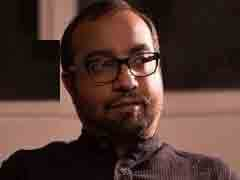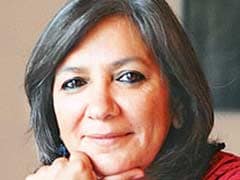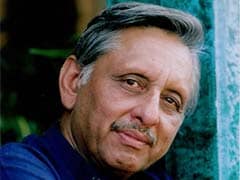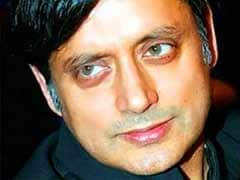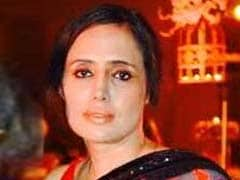- Home/
- Barack Obama Told Nawaz Sharif not to Discriminate Among Terror Groups
Barack Obama Told Nawaz Sharif not to Discriminate Among Terror Groups
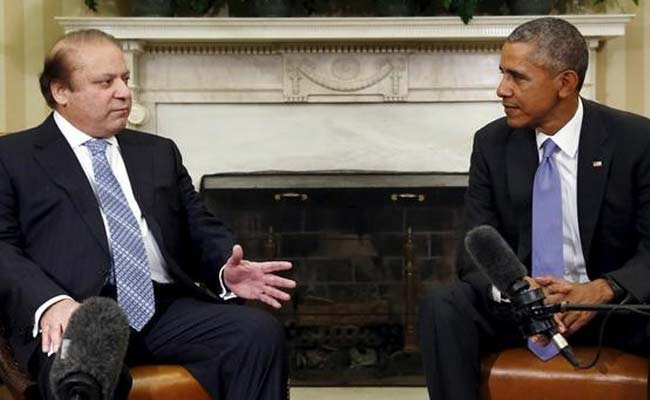
"One piece that was important to the President is that Pakistan not discriminate against terrorist groups," White House spokesman Eric Schultz told reporters Friday when asked about Sharif's anti-India comments.
"That's something that we've made clear in the past and was reiterated yesterday in the bilateral meeting," he said referring to the joint statement issued after Thursday's 90 minute meeting between Sharif and Obama.
The joint statement speaks of Islamabad's resolve to take effective action against Pakistan based terror outfit Lashkar-e-Taeba (LeT) and its affiliates responsible for the Nov 2008 Mumbai terror attack - something that Pakistan was unwilling to do in the past.
Specifically on terrorism, Shultz said, Obama and Sharif "both noted that our two countries are threatened by terrorist groups, and that the Pakistani people have suffered greatly."
"These leaders committed to continue bilateral counterterrorism cooperation," he said. "And President Obama highlighted the importance of Pakistan undertaking effective action against terrorists that seek to undermine peaceful dialogue and destabilise the region."
In response to another question, Shultz said, "the President deeply values his relationship with Prime Minister (Narendra) Modi; that the United States and India have worked together very closely."
"They have a strong partnership specifically on expanding economic opportunities. That's something the President has worked hard on," he said.
Obama has "directed his team here at the White House and throughout the administration to focus on our relationship there and seek opportunities to expand cooperation."
Meanwhile, at the State department asked about Sharif's accusation about India's arms buildup and his threat to take countermeasures, spokesman Mark Toner said: "We've been very clear that India and Pakistan need dialogue."
"They need to continue to discuss with each other their mutual concerns about security and that they need greater engagement, because frankly, better dialogue, improved dialogue, greater cooperation between those two countries is important for all the security of the entire region."
Asked to comment on Sharif's description of India-Pakistan relationship as a "most difficult and urgent challenge," Toners said "I'm not going to certainly parse his perception of what he views as the greatest single threat to Pakistan."
But "Pakistan has been, as we all know, deeply affected by terrorism and has taken steps to counter that terrorism in the recent past."
"We want to see those efforts expand. But it's such a complex dynamic. You've got Afghanistan and the Taliban's continued presence there on one side," Toner said.
"You do have tensions with India, and those need to be addressed. We believe that that's best addressed through continued dialogue between the two countries," he said.
"Beyond that, they need to share information, share cooperation," Toner said. "But ultimately, it's up to those two countries to chart a way forward that addresses each of their concerns."
Earlier speaking at a Washington think tank, Sharif accused India of an arms build-up, and said Pakistan will be compelled to respond with counter-measures to retain "credible deterrence". Calling the India-Pakistan relationship a "most difficult and urgent challenge", Sharif also pleaded for greater attention from Washington to Pakistan's "views and interests".
This would be helpful in enabling "Washington to play a constructive role in averting the ever-present danger of escalation," he said.
................................ Advertisement ................................
Opinion
MoreOpinion: China Has Helped India's Cause With TrumpMihir Sharma, Bloomberg
Thursday June 29, 2017Very little was expected in India from Prime Minister Narendra Modi's visit to the U.S., and for good reason: Modi had gone out of his way to cultivate a personal relationship with Barack Obama, including famously pouring out a cup of tea for him and the cameras when Obama visited India.
Opinion: Modi's US Speech Was Letter Perfect, Ticked Off Every BoxAshok Malik
Friday June 10, 2016Without taking recourse to the old wailing sheet and cribbing to everyone about Islamabad, Modi has devised a mechanism to shape the debate to India's advantage.
Opinion: Modi Ignored Advice To Make Obama Squirm. It Has Paid Off.Jyoti Malhotra
Saturday June 04, 2016The visit to the US in the coming week, in fact, brings Obama's relationship with both Modi and India full circle.
Blogs: कादम्बिनी के कीबोर्ड से : क्या परमाणु करार पर पीछे हटे हम?
Sunday February 08, 2015असल में परमाणु रिएक्टरों में हादसे की सूरत में जो हर्जाना होगा, वह रिएक्टर चलाने वाले को यानि ऑपरेटर को देना होगा। कानून में यह प्रावधान है कि अगर ऑपरेटर चाहे तो वह सामान और ईंधन आपूर्ति करने वाले पर हर्जाने के लिए दावा कर सकता है। लेकिन यहां पर समझने वाली बात यह है कि ऑपरेटर कौन होगा।
Opinion: Mani-Talk: Modi is Turning Us into America's New PakistanMani Shankar Aiyar
Thursday February 12, 2015In "Cold War II", battlefield could be India, writes Mani Shankar Aiyar.
Opinion: Obama Had Pointed Message for Modi 2.0Shashi Tharoor
Wednesday January 28, 2015Clear warning that PM will fail if he reverts to Modi 1.0, writes Shashi Tharoor.
Opinion: What Pakistan Makes of Obama-Modi ChemistryMehr Tarar
Tuesday January 27, 2015Acceptance of Modi's goal-oriented leadership, writes Mehr Tarar.



